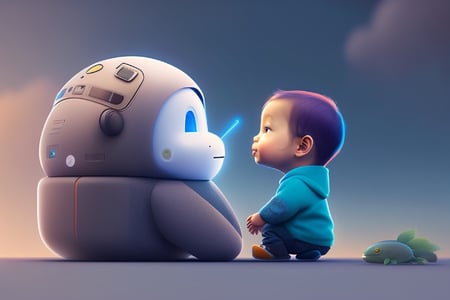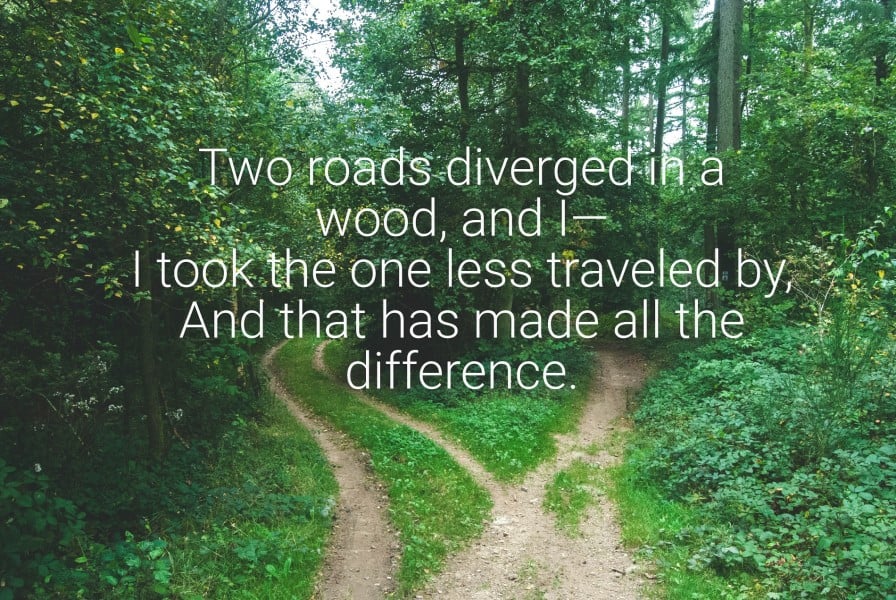
Marc Andreesen – yes, that Andreesen, the co-founder of the famous investment firm Andreesen Horowitz – recently wrote a long essay (about 7000 words) on why AI will save the world (link 1 below). Literally – that’s the title. If you don’t want to read the entire essay by Marc Andreesen, he gives in an interview in his firm’s podcast where he goes over all of the details (link 2).
Andreesen gives many examples of the potential benefits of AI – better medicines, better education more creativity. He also pooh-poohs the detractors of AI, pointing out that AI won’t turn into killer robots like in the movies.
I agree with him on both points – The Terminator is a movie, not reality, and it is a pretty far stretch to get from ChatGPT to anything dangerous on its own. And I also agree that AI will bring many benefits. Like Andreesen, I’m a techno-optimist. But AI as a technology isn’t what worries me.
What worries me are my fellow humans.
Andreesen points out, correctly, that technology is a tool, and that any tool can be used for both good and bad purposes. I’m much more concerned about human beings using this amazing new tool – AI – for bad purposes than I’m afraid of the AI itself.
History can help show which fears about new technology, like AI, are most realistic.
The Industrial Revolution – Luddites Smashing the New Machines
Industrial Revolution in England began in the mid-18th century, around the 1760s or so. It was kicked off by the invention of the steam engine, followed by the mechanization of everything from textile production to iron making. But it was terrible for the factory workers. Children as young as 8 years old worked long hours on really dangerous production lines (link 3). The conditions were unsafe and unhealthy for all workers. Many only made enough money to eat and rent a room (if they were lucky) for that day – meaning that they had to work every day just to stay alive.
And if you got injured, there was no insurance or workers’ compensation. If your family couldn’t support you, then you relied on charity – the dreaded poorhouses. The poor, the injured and the old were simply dumped into poorhouses, where they would face malnutrition, beatings and neglect. They were effectively prisons (link 4).
The Industrial Revolution is the poster child for technology literally destroying human lives. But the steam engine had no autonomy. The factory machines didn’t deliberately turn on the workers. Instead, it was the humans controlling these machines that caused all of the misery.
One group of workers, known as the Luddites, fought against the use of these machines at the start of the Industrial Revolution (link 5). They weren't a bunch of technophobes, as some people paint them; rather, they were skilled workers who saw their livelihoods disappearing before their eyes. So, what did they do? They fought back, often by smashing the new mechanical looms and other machinery that were making their skills obsolete. While their methods might have been extreme, their actions reflect the fear and desperation of a class of workers facing an uncertain future in a rapidly changing world.
And so the Luddites were right – the new technology was terrible for them.
But then, amazingly, the new technology started bringing widespread benefits to the entire population. How did this happen?
Why Technology Became a Force for Good
We now live in a much more prosperous era. We live longer lives, have better medicines, more comfortable homes (thank you, central heating and air conditioning!), better transportation – the list goes on and on.
And all of this comfort is due to technology. So how did technology go from being bad for factory workers to great for everyone?
The answer is, once again, down to humans and how they chose to use the technology.
One big problem with the UK during the Industrial Revolution was overpopulation. In the 100 years before the Industrial Revolution started, the population tripled. This was due to improved agriculture techniques, which eliminated the periodic famines that had swept the country before (link 6).
In other words, the factory owners of the Industrial Revolution treated their workers terribly because they could get away with it.
But by the 1930s, these owners had changed their tune. In the US, this is credited to President Roosevelt and his pro-union policies (link 7). It was also due to fear of the challenge presented by communism, after the revolution in Russia and increased popularity in Europe. Laws were passed. The terrible exploitation of workers was significantly reduced.
Prosperity became more widely shared. And overall prosperity increased as technological improvements accelerated.
AI: Force for Good or Evil?
Andreesen argues that regulation of AI will lead to regulatory capture – to the “bootleggers” winning. In his essay, he divides social movements that seek to ban or regulate technology into two camps: Baptists and bootleggers. He uses Prohibition as his example, when production and sales of alcohol were banned in the US. In his telling, “Baptists” are those who sincerely believe that a particular technology is wrong, while bootleggers take advantage of these beliefs to make money. And certainly, this could happen.
But I would point to my earlier example, regarding unions and laws that protect workers’ rights. The fight to get these laws passed was a social movement, with sincerely held beliefs. It didn’t seek to ban technology. Instead, it wanted to protect the humans affected by the technology.
We can apply the lessons of the fight for workers’ rights then, to protecting all of us from the ill effects of AI.
AI can be a force for good – if we humans allow it to be.
Questions? You can schedule a meeting with me to go more in depth about any questions that you have about AI.
Image Credit: Lexica.art
References:
Link 1 (article by Marc Andreesen on how AI will save the world): https://a16z.com/2023/06/06/ai-will-save-the-world/
Link 2 (podcast with interview by Marc Andreesen, about his essay): https://a16z.simplecast.com/episodes/ai-will-save-the-world-with-marc-andreessen-and-martin-casado-1AV70c1c
Link 3 (child labor during the Industrial Revolution in the UK): https://www.bl.uk/romantics-and-victorians/articles/child-labour
Link 4 (poorhouses): https://www.historic-uk.com/HistoryUK/HistoryofBritain/Victorian-Workhouse/
Link 5 (what were the Luddites really fighting against): https://www.smithsonianmag.com/history/what-the-luddites-really-fought-against-264412/
Link 6 (overpopulation during the Industrial Revolution): http://www.csun.edu/~sr6161/world/unit%203/Unit%203%20Detail%203%20Review.pdf
Link 7 (unions in the US in the 1930s): https://www.loc.gov/classroom-materials/united-states-history-primary-source-timeline/great-depression-and-world-war-ii-1929-1945/labor-unions-during-great-depression-and-new-deal/
